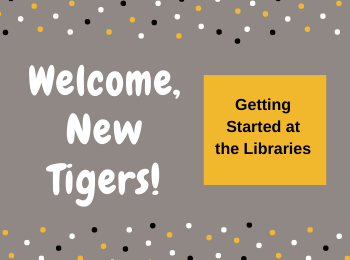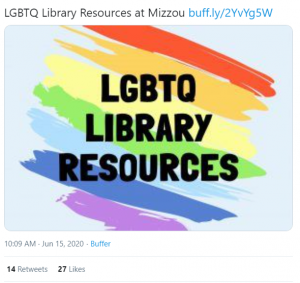Shannon Cary
Marketing Highlight
July 4th Holiday Policy
Because the 4th of July is on a Saturday this year, Friday July 3rd is the paid holiday. Staff should not work that day.
https://www.umsystem.edu/ums/rules/hrm/hr400/hr401
HR-401 Holidays
Summary
The following days have been designated as official University holidays: New Year’s Day, Martin Luther King Day, Memorial Day, Independence Day, Labor Day, Thanksgiving Day and the Friday following, Christmas Day, and other days as may be designated by the President. Holidays are considered to extend over a 24-hour period. When a holiday falls on Saturday, the preceding Friday is observed. When a holiday falls on Sunday, the following Monday is observed. Official holidays occurring during a vacation period are not counted against vacation time.
Town Hall Notes and Recording 6/10/20
External Email Tagging
On June 14, 2020 the Division of IT began adding a tag to emails that are received from external email addresses. The tag looks like this: WARNING: This message has originated from an External Source. Please use proper judgment and caution when opening attachments, clicking links, or responding to this email.
We are adding a tag to battle email spoofing. Spoofing is a technique cyber criminals use to make an email look like it’s coming from someone you know or work with in order to get you to respond with confidential or sensitive information. We have seen an uptick in spoofing incidents lately and are adding the tag to help you stay alert and avoid falling victim to these nefarious tactics.
As you know, securing our IT systems is a huge and ever evolving challenge. Spoofing and phishing pose significant threats and continue to consume a substantial amount of time from our security and email teams at all four Universities.
If you get an email labeled “external” and it appears to be from someone you work with (colleague, supervisor, etc.), please contact that individual through a different channel to find out if their email is legitimate. Please remember, all work-related emails must be conducted using your University email account. Using Gmail or other consumer type email systems to conduct University business is prohibited by policy.
Welcome to the University Libraries

Welcome Tigers! We’re so glad you’re here, and we’re sad that we don’t get to see you in person this summer. Although Summer Welcome takes place online this year to keep you and your family safe, we still wanted to introduce you to the library resouces and services that will be vital to your success at Mizzou. Visit our Summer Welcome website to get started. We hope you have a great Summer Welcome experiene, and we look forward to meeting you in the fall!
Click here for the latest information on the reopening of the Mizzou Libraries.
Cogratulations to Renita Richmond
Please help me wish Renita Richmond, our long time LIA in Health Sciences, a fond farewell as she heads off into retirement. Renita’s retirement starts today, so we won’t get to have a formal send off. Renita has been an absolute gem to work with and has been the rock holding tech services at HSL together for many years. We are very happy for her but very very sad for us.
Renita, we will miss you so much!
–Amanda Sprochi
New Muse Posts
Mizzou Alumni Magazine Articles in MOspace
While the size is relative to the individual, work from home is an obstacle for all of us. Away from important scanners and physical materials, the Digital Services Department has kept on its toes with other digitization opportunities. One current project involves processing and uploading title stories from MIZZOU, the magazine of the Alumni Association, enhancing their availability as individual articles in MOspace and enhancing discoverability through tools like Discover@MU or Google Scholar. The magazine, formerly titled Missouri Alumnus, has chronicled University life, challenges, academic pursuits, and athletic accomplishment for over one hundred years. Through this project, Digital Services staff have been rediscovering the legacy of obstacles, successes and highlights, for instance:
- a Summer 1991article about the MSA president pushing a state ballot initiative for more financial support in higher education;
- Jill Raittbeginning the Religious Studies department during a budget crunch, November 1982;
- the removal of ‘temporary’ barracks that covered campus in order to accommodate the incredible enrollment increase following World War II, May 1983;
- the excitements of Ellis Library in “Stacks of Knowledge,” Fall 1992.
The articles – currently numbering 982 — are available in the Mizzou Alumni magazine feature stories collection.
